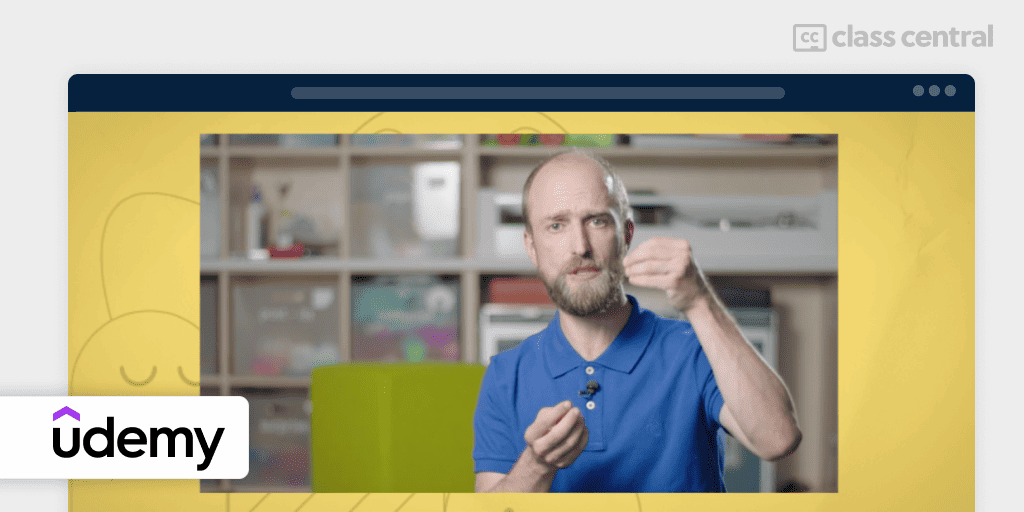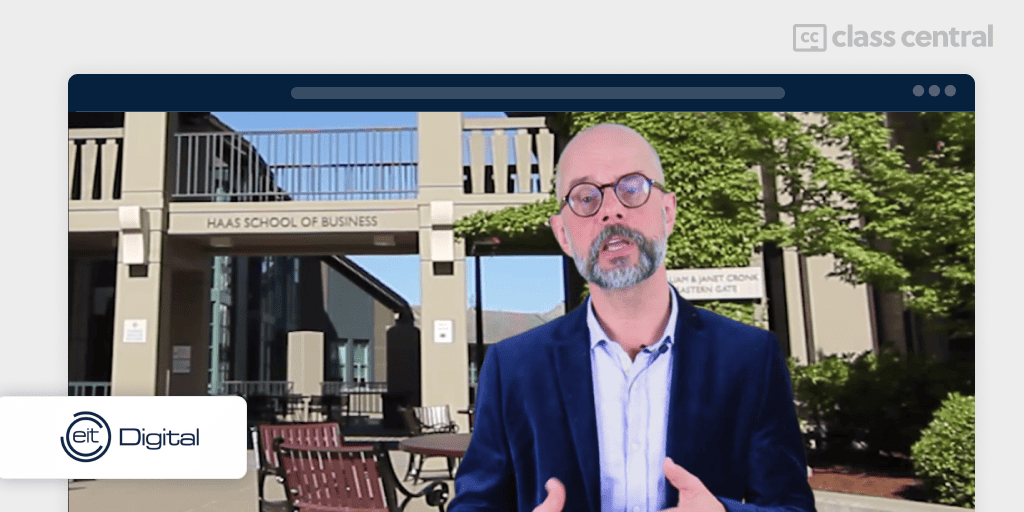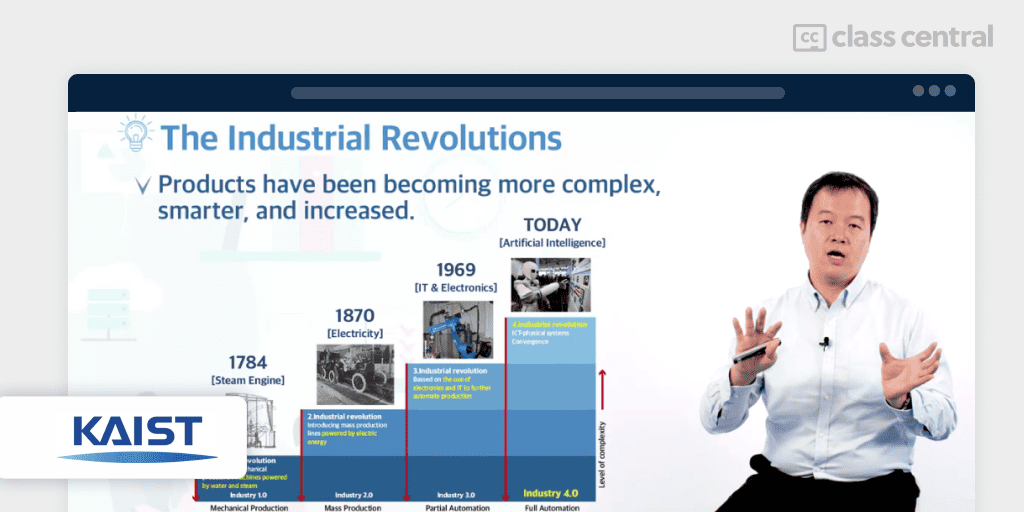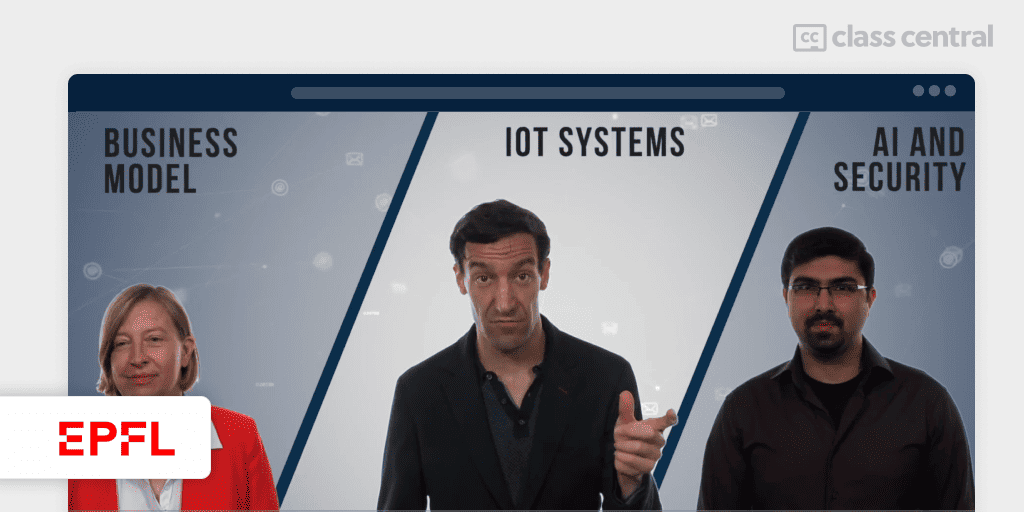9 Best Design Thinking Courses for 2025: Creative Problem-Solving
Master design thinking: Solve complex problems through empathy, innovation, and iteration. Gain practical skills for user-centered solutions.
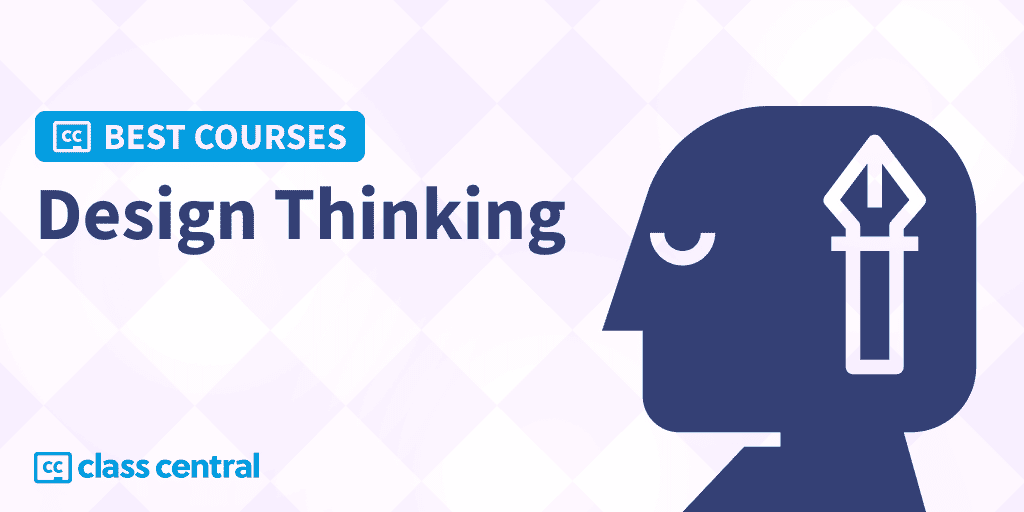
When I was in college, I used to read Steve Blank’s blog weekly. His blog introduced me to the BMC (Business Model Canvas) by Alexander Osterwalder, a groundbreaking tool for finding business innovation opportunities. I immersed myself into the BMC method, even sketching out my own canvas to hang in my bedroom for daily inspiration.
Years later, as I ventured into owning my first business, I came across ”Lean Startup.” This book opened my eyes to the potent application of Lean Manufacturing in the startup and tech world. It’s been over a decade, and I’m still unpacking and applying the wealth of knowledge from these methodologies in all my projects.
When disruptive technologies and innovative thinking are the new standard, using creativity and data is key to making impactful decisions. That’s why we’ve carefully curated the best Design Thinking courses. Whether you’re just starting out or already have some design thinking experience, our selection covers diverse fields from tech innovation to gender inclusivity, and IoT (Internet of Things) applications.
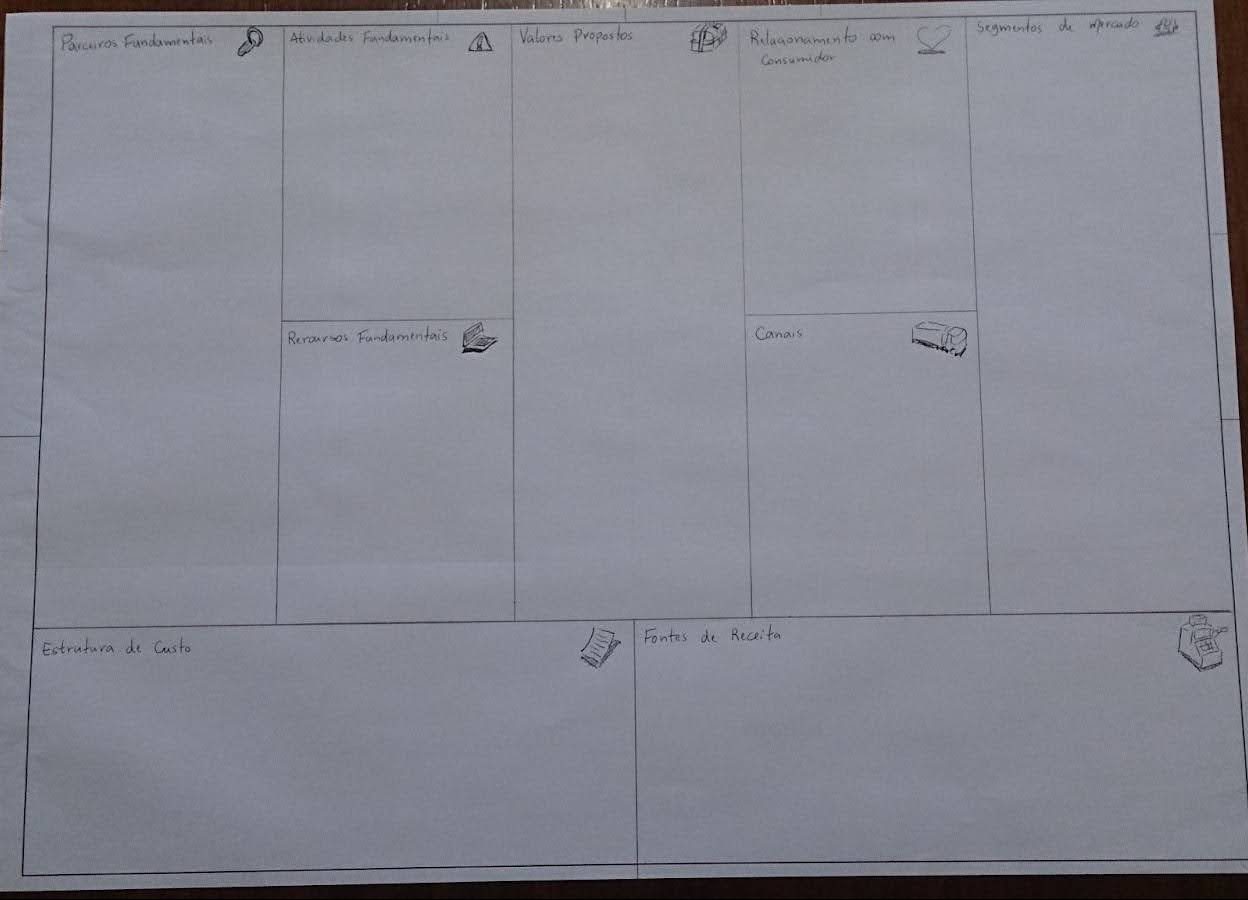
Click on the shortcuts for more details:
Here are our top picks
Stats
- All courses are free or free-to-audit, except for one.
- The Design Thinking subject is followed by 102K learners on Class Central
- The most featured provider is Coursera with 6 courses.
Best Introductory Course to Design Thinking (University of Virginia)
Learn how to cultivate an innovation-ready mindset with Design Thinking for Innovation from the University of Virginia. This free-to-audit course is a compelling course for managers, entrepreneurs, and educators who want to foster a culture of innovation in their work and don’t know where to start. Developed at the Darden School of Business and taught by Jeanne Liedtka, a professor and award-winning author, this course provides an overview of design thinking as a problem-solving approach.
The course encapsulates the essence of design thinking, starting with its definition and effectiveness compared to traditional methods. Through real-life case studies about effective innovation strategies, it illustrates the practical application of design thinking tools.
What you’ll learn:
- The fundamentals of design thinking and its superiority for innovation
- The role of mindset in spotting and seizing opportunities
- Design Thinking tools: Visualization and Storytelling for idea generation
- Real-world examples including The Good Kitchen and IBM
- Developing skills in generating, testing, and implementing innovative ideas.
If you enjoy this course and instructor, you should also consider taking:
- Design Thinking Specialization
- Design Thinking for the Greater Good: Innovation in the Social Sector
“This course was a good introduction to Design Thinking […] I learned that to cultivate a growing mindset, I need to find a workplace culture where I can thrive. I should find an employer who can give me the space to try and succeed/fail, and learn from mistakes. This is the key to successful innovation” – Kai
| Provider | Coursera |
| University | University of Virginia |
| Instructor | Jeanne M. Liedtka |
| Time Commitment | 6-7 hours |
| Enrollment | 452K |
| Rating | 4.7 (9K) |
| Cost | Free to audit |
| Quizzes/Assessment Items | 1 quiz |
| Certificate | Paid |
Also Great Short Intro to Design Thinking (Udemy)
Discover a powerful approach to solving complex problems with The World of Design Thinking. This free course is excellent for those looking for a concise introduction to the principles and practices of Design Thinking. Spanning just over 3 hours, it is packed with valuable insights and methodologies for solving complex, ‘wicked’ problems through human-centered design.
You’ll learn:
- Principles of Design Thinking and its application in solving complex problems
- The critical process steps like Needfinding, Synthesis, and Ideation
- Practical skills in Prototyping and Testing
- Managing agile, human-centered design projects effectively.
“An excellent course to introduce the concept of Design Thinking to beginners. The course may at first seem to be of just 3 hours but as you go along, it becomes very detailed. It has links to some of the very good articles on design thinking and I would definitely recommend they be read thoroughly before moving ahead. Overall, a very good course.” – Dayal Saran M., Udemy learner
| Provider | Udemy |
| Instructor | Falk Uebernickel |
| Time Commitment | 3 hours |
| Enrollment | 26K |
| Rating | 4.4 (2K) |
| Cost | Free |
| Quizzes/Assessment Items | None |
| Certificate | None |
Best Course for Managers and Entrepreneurs (The University of Sydney)
Moving innovative ideas beyond the conceptual stage and overcoming internal organizational barriers is the main focus of Design-Led Strategy: Design thinking for business strategy and entrepreneurship, created by The University of Sydney.
This free-to-audit course is an excellent choice for managers and entrepreneurs at the beginning of their journey into design-led innovation, getting a glimpse of both Business Model Canvas and Design Thinking. This course will equip you with the tools to launch innovative products or services effectively.
What you’ll gain:
- Understanding the fundamentals and applications of design-led strategy
- Conducting primary market research and crafting problem statements
- Techniques in prototyping, product ideation, and developing minimum viable products
- Real-world case studies from UBank and Swiss Re on implementing design strategies
- Applying design-led strategies in start-ups or established business environments.
“The course successfully teaches you the basics of design thinking and design strategy. It really makes you think through the entire course and gives some amazing articles and blogs to read. It really helped me in understanding the basics and making me an enthusiast in design thinking.” – Komal B, Coursera learner
| Provider | Coursera |
| Institution | The University of Sydney |
| Instructor | Eric Knight |
| Time Commitment | 20 hours |
| Enrollment | 82K |
| Rating | 4.6 (1K) |
| Cost | Free to audit |
| Quizzes/Assessment Items | 10 quizzes |
| Certificate | Paid |
Best Course for Integrating Design Thinking in Tech Innovation (Macquarie University)
If you want to leverage new technologies not just for the sake of innovation, but to meet and exceed user needs and expectations, Innovation and Emerging Technology: Be Disruptive from Macquarie University is ideal for you. You’ll learn how to inject Design Thinking principles into technology-driven strategies within your organization.
This free-to-audit course places an emphasis on understanding the role of emerging technologies in innovation. It also has a dedicated module to Design Thinking alone where it provides a framework for approaching technological innovation with a human-centered mindset, crucial for creating impactful, user-oriented solutions in tech.
What you’ll gain from this course:
- Insights into disruptive technologies and their transformative potential
- Tools for strategic thinking and analysis in an innovation-driven environment
- Comprehensive understanding of business models and digital platforms
- Introduction to Design Thinking and its application in technology-driven innovation.
“A very well structured course and very complete. A lot of information and questioning is beneficial for understanding the disruption. Thanks Dr Mauricio Marrone for this course.” – vignaux, Coursera learner
| Provider | Coursera |
| University | Macquarie University |
| Instructor | Mauricio Marrone |
| Time Commitment | 17 hours |
| Enrollment | 23K |
| Rating | 4.8 (447) |
| Cost | Free to audit |
| Quizzes/Assessment Items | 10 quizzes |
| Certificate | Paid |
Best Course to Learn from Design Thinking to Funding for Startups (EIT Digital)
EIT Digital’s Innovation & Entrepreneurship – From Design Thinking to Funding is an essential course for anyone looking to understand the business models and strategies that drive successful startups in Silicon Valley. From identifying sources of funding to strategies for effectively pitching your startup, the course covers all essential aspects of financing a new venture.
You’ll learn:
- Silicon Valley models for startup growth and development
- Design Thinking and its importance in creating user-centric products and services
- The innovation cycle, detailing each stage and how it contributes to a startup’s growth
- Business models: their definitions, approaches, frameworks, and tools
- Customer discovery: a critical aspect of determining product-market fit
- Practical insights into securing funding for startups.
“This is one of the best courses on the subject of Design Thinking; the various lecturers are well established in this discipline. The course equips non-designers with the concepts of the design thinking process for creative problem solving. I enjoyed it.” – Joe M, Coursera learner
| Provider | Coursera |
| Part of | Value Creation Through Innovation Specialization |
| Institution | EIT Digital |
| Instructors | Mark Coopersmith, Frans Nauta, Andrew Isaacs, Martin Vendel and Clark Kellogg |
| Time Commitment | 12 hours |
| Enrollment | 14.7K |
| Rating | 4.7 (149) |
| Cost | Free to audit |
| Quizzes/Assessment Items | 7 quizzes |
| Certificate | Paid |
Best Design Thinking Course for Engineers (KAIST)
Offered by the Korea Advanced Institute of Science and Technology (KAIST), Design Thinking and Global Startup stands out for its combination of Design Thinking with Lean Startup methodologies, making it highly relevant for those in technical fields.
Perfect for engineers and professionals in the manufacturing/tech sector looking to venture into the global startup ecosystem, this free-to-audit course provides an exploration of the Stanford Design Thinking process, emphasizing the “Prototype and Test” stages, crucial for creating products that genuinely meet customer needs.
It also explores advanced manufacturing methodologies aligned with the 4th Industrial Revolution technologies including AI, Big Data, and 3D Printing, equipping students with the skills to innovate in a rapidly evolving industry.
What you’ll learn:
- The Stanford Design Thinking process for startup development
- How to utilize advanced technologies for prototype creation and testing
- Essential tools for a startup founder: one-liner, lean-canvas, and IR (investor relations) pitch deck
- Insight into global startup ecosystems and strategies.
“I enjoyed learning about design thinking and startups. It gives an in-depth understanding of how to start businesses and how to make products and understanding the main concepts.” – Devina P., Coursera learner
| Provider | Coursera |
| Institution | KAIST |
| Instructor | Yoon Yong Jin |
| Time Commitment | 7-8 hours |
| Enrollment | 9K |
| Rating | 4.6 (129) |
| Cost | Free to audit |
| Quizzes/Assessment Items | 6 quizzes |
| Certificate | Paid |
Best Course for Gender-Inclusive Design Thinking (University of Toronto)
Do you want to develop products, services, processes, and policies that are not only innovative but also cater to diverse populations? Human-Centered Design for Inclusive Innovation offered by the University of Toronto is perfect for you. This free-to-audit course focuses on inclusivity, particularly through the lens of Gender Analytics.
This course integrates gender perspective into each step of the design process, from empathizing and ideating to prototyping and testing. You’ll learn to see design challenges through a gender-inclusive lens, ensuring your solutions are considerate of various user experiences and needs.
What you’ll learn:
- How to Integrate gender analytics into human-centered design processes
- Developing empathy-based research methods for diverse user groups
- Applying inclusive perspectives in ideation, prototyping, and testing
- Skills in problem-finding and co-creating with a diverse range of stakeholders.
“I’ve taken dozens of Coursera courses, and this is by far the most practical and valuable one of them all. The workbook, handouts, and methodology are things I’ll reuse throughout my career, and I’ve already begun applying learnings in my professional life from this course.” – Laura E S, Coursera learner.
| Provider | Coursera |
| Part of | Gender Analytics: Gender Equity through Inclusive Design Specialization |
| University | University of Toronto |
| Instructor | Sarah Kaplan, Nika Stelman and Mark Leung |
| Time Commitment | 13 hours |
| Enrollment | 8K |
| Rating | 4.8 (165) |
| Cost | Free to audit |
| Quizzes/Assessment Items | 5 quizzes |
| Certificate | Paid |
Best Design Thinking Course for Creatives (Domestika)
Design Thinking: Lead and Innovate Successful Projects is designed for creatives and professionals eager to revolutionize their project workflow and enhance their design process. Ideal for those who work closely with clients and teams, this course offers a deep dive into the nuances of Design Thinking, taught by Lisa Weinsberger, an award-winning Design Thinker and Innovation Consultant.
The course covers the entire spectrum of Design Thinking, from understanding customer needs to prototyping, testing, and evaluating solutions. A key feature is its focus on a solution-based and human-centered approach, ensuring that the design process is not just about problem-solving but also about understanding and empathizing with the users.
Key Learnings:
- Mastering the five phases of Design Thinking for project innovation
- Developing customer empathy and effectively defining problems
- Techniques for brainstorming, prototyping, and gathering user feedback
- Strategic approaches to stand out as a designer and lead innovative projects
- Practical exercises: conducting interviews, creating empathy maps, and user testing.
“I used this to supplement my studying at university. Very insightful and charismatic teacher” – assadjan87, Domestika learner.
| Provider | Domestika |
| Instructor | Lisa Weinsberger |
| Time Commitment | 2-3 hours |
| Enrollment | 4K |
| Rating | 100% (97) |
| Cost | Paid |
| Quizzes/Assessment Items | 17 lessons & 21 downloads |
| Certificate | Paid |
Best Design Thinking Course for IoT Systems and Applications (EPFL)
Do you want to integrate Iot (Internet of Things) systems and applications with Design Thinking? IoT Systems and Industrial Applications with Design Thinking, offered by the École Polytechnique Fédérale de Lausanne is for you. This free-to-audit course is tailored for learners who want to understand the foundational aspects of IoT and how it is transforming industries and creating new business opportunities.
The course starts with an introduction to IoT, making it accessible even for those without advanced electronics or communication background. As the weeks progress, you’ll delve deeper into specific aspects of IoT, including components, Edge AI sensors, communication, and cloud platforms.
What you’ll learn:
- Fundamentals of IoT technologies and their industrial applications
- Knowledge of integrating Design Thinking in IoT system optimization
- Insights into developing business models and value propositions for IoT solutions
- Edge Machine Learning and IoT security.
| Provider | edX |
| Institution | École Polytechnique Fédérale de Lausanne |
| Instructor | David Atienza, Bettina Buechel and Amir Aminifar |
| Time Commitment | 21-28 hours |
| Cost | Free to audit |
| Quizzes/Assessment Items | Yes |
| Certificate | Paid |
Why You Should Trust Us
Class Central, a Tripadvisor for online education, has helped 100 million learners find their next course. We’ve been combing through online education for more than a decade to aggregate a catalog of 250,000 online courses and 250,000 reviews written by our users. And we’re online learners ourselves: combined, the Class Central team has completed over 400 online courses, including online degrees.
How We Made Our Picks and Tested Them
Trying to find “the best” can be daunting, even for those of us who live and breathe online courses. Here’s how I approached this task.
First, I combed through Class Central’s Catalog and the internet to find a variety of free and paid open courses, some with certificates. You don’t need to enroll in a university to learn about design thinking.
When choosing courses, I considered the following factors:
- Renowned Institutions: I looked for recognized institutions in design thinking
- Instructor experience: I sought instructors with extensive experience and engaging presentation styles
- Popularity: I checked numbers of enrollments and views to find popular courses
- Course content: I examined courses that covered a range of topics and presentation styles, including the basics and more advanced topics. I watched some course videos to sample courses I hadn’t already taken
- Learner reviews: I read learner reviews (when available) to get a sense of the quality of each course, leveraging the Class Central database with its thousands of course ratings and reviews written by our users as well as available course provider reviews.
Then, I defined the scope for these recommendations. A design thinking course can cover various topics, so I chose top courses from a range of sub-fields.
Ultimately, I used a combination of data and my own judgment to make these picks. I’m confident these recommendations will be a reliable way to learn about design thinking.




